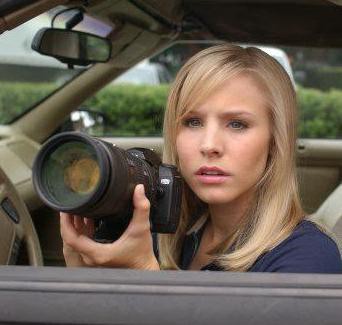A Short Chat With a Woman Who Quit Her Job to Make Documentaries

Rosey Guthrie turns 50 this year, and 12 years ago she made a drastic change in her career. I sent her some questions over email, and she replied from Guatemala, where she was premiering one of her films.
Tell me about your career, Rosey Guthrie.
I worked full-time for many years at a desk job in marketing and distribution. When my father died in 2002, there was something in me that shifted. It’s a little cliché, but I felt that life is short and I wanted to do something different, something that got me out from behind my desk more, something more creative. So I started working on and producing documentary films. I definitely make less than I did in 2002, but have seen more of the world and have had the chance to write, shoot, edit.
How much do you work?
I work two different jobs, one on a series for PBS, and one on a doc for an independent company. I usually work three to four days at one and one to two days at the other.
Can you tell me a little bit about how you are paid? Do you get a wage? Or do you only make money if the film makes money? I’m afraid I don’t know much about working in film…
I am paid for the PBS series on a regular, bi-weekly basis. The production company is a non-profit arts organization, so there’s no income or income sharing from the documentaries.
The other doc I work on is for a small company, run by a director/editor/writer/cameraman, and on that I get paid bi-weekly when we are in production, and little or nothing when we are writing grants (the films we’ve made are 100% financed by grants) or promoting the film. Over the past 10 years I’ve been working with him, I probably got paid half of the time and deferred the rest. I have mostly been paid back for my deferments through a percentage of DVD sales … it took me about six years to be paid back for about two years of deferred part time work.
Deferred payment sounds rough!
Yes, my financial life changed drastically, when I left my full-time employment — by choice. I knew I would be making less money, and that I might have to take other part-time work to help pay the bills, but I also knew that I wanted to try something new and perhaps be able to have more variety in my work.
So I definitely don’t eat out as much or go shopping for clothes, etc. as much. I drove a not-so-great car for a couple of years, so I wouldn’t have car payments.
Sometimes I get a little anxious about the uncertain nature of freelance, part-time work, but then I
remind myself that the full time corporate job also had its uncertainties. I saw layoffs and other changes there.
Support The Billfold
The Billfold continues to exist thanks to support from our readers. Help us continue to do our work by making a monthly pledge on Patreon or a one-time-only contribution through PayPal.
Comments